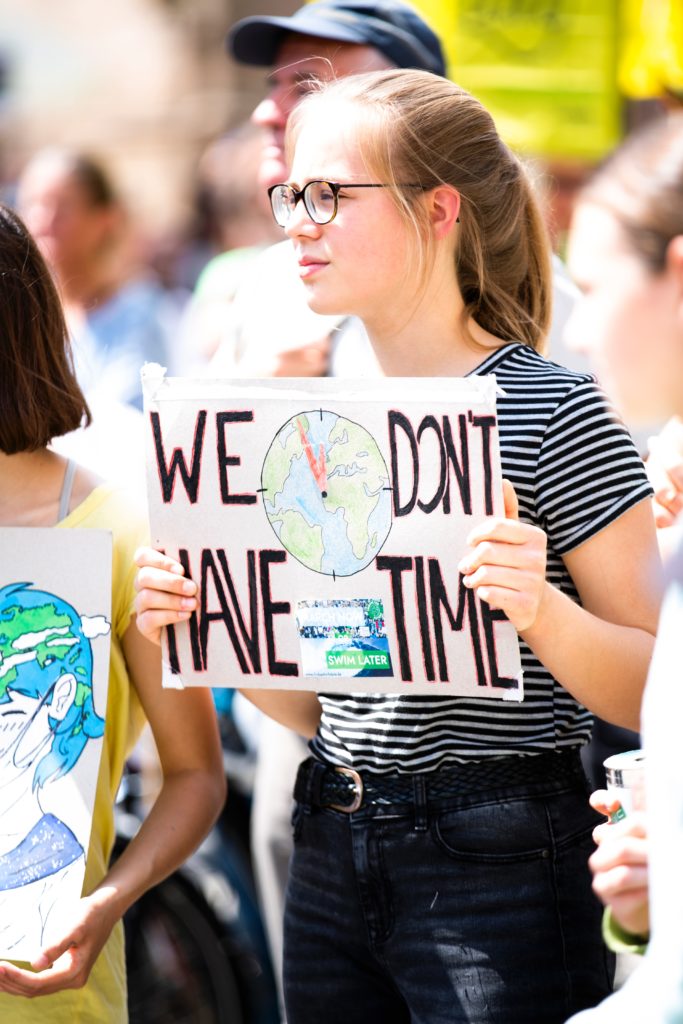Maybe you saw or heard climate activist Greta Thunberg speaking at the United Nations Climate Action Summit this week. It was impossible not to feel her passion and anxiety when she challenged adults about their inaction — “How dare you.”
Just 16, Greta can see the future and she’s worried. As she should be. She wants to save the world — the world she’ll be living in as an adult — because the predictions for it are dire.

I was once as passionate about saving the world as Greta is. In 1969, we landed on the moon and “Earthrise,” the iconic image of our gorgeous planet from space — which had never been seen before — inspired the concept of Spaceship Earth and led to the rise of the environmental movement.
I attended the first Earth Day celebration the following year, and knew exactly what I wanted to do when I grew up — be an ecologist and save the planet.
It was such a new concept that there were only about four colleges that offered environmental science as a major.
When I dropped out of college after a year it wasn’t because I was any less passionate about saving the world. I left because I reconnected with an old high school boyfriend and followed him to Colorado, where he was going to attend college.
Following the romantic script
That’s right — I allowed romantic love to derail my dreams of saving the world. Having a boyfriend and following a certain romantic trajectory — fall in love, marry, pop out some kids, get a house and a dog — was all I knew; I didn’t know there were other ways to exist in the world than being partnered. It’s what philosopher Elizabeth Brake calls amatonormativity — the “assumption that everyone is better off in an exclusive, romantic, long-term coupled relationship, and that everyone is seeking such a relationship.”
I sure thought I needed to have a boyfriend in those days, and I wasn’t the only one who thought that way. Yes, we young gals were inspired by the feminist movement, and despite watching TV shows like “That Girl” and “The Mary Tyler Moore Show,” which showed happy and successful independent women, most of us still assumed love, marriage and kids would happen one day. As much as I feared overpopulation, I didn’t consider how having kids of my own might impact our planet.
This is not happening with Greta and her generation. There’s a sense of urgency right now. Young people are already pledging not to have children unless adults address climate change.
Since many people see having children as the main reason to marry, what will this mean for the traditional romantic script?
Maybe it’s finally going to go away.
Rejecting traditional norms
Young adults are already rejecting traditional norms — whether it’s a disinterest in sex and dating, or being open to polyamory and consensually non-monogamous relationships, or being vague about gender, or delaying (or just totally rejecting) marriage, or finding other ways to define family.
This is not to say that young people today have no interest in romantic relationships. Many do, and many still want to get married and have children — or maybe just one.
But I see a pivot and it’s a good pivot.
True, there’s a lot of growing up between the teen years and adulthood. It could be that Greta and her peers will see things differently in their 20s or 30s.
Still, they are thinking about some real issues and relating them to personal choices and actions, and that may alter their romantic trajectory. And maybe that means there are fewer young people — OK, fewer young women — who will abandon their dreams for love.
Want to know if marriage is right for you? (Of course you do!) Read The New I Do: Reshaping Marriage for Skeptics, Realists and Rebels (Seal Press). You can support your local indie bookstore (please do) or order it on Amazon.
















